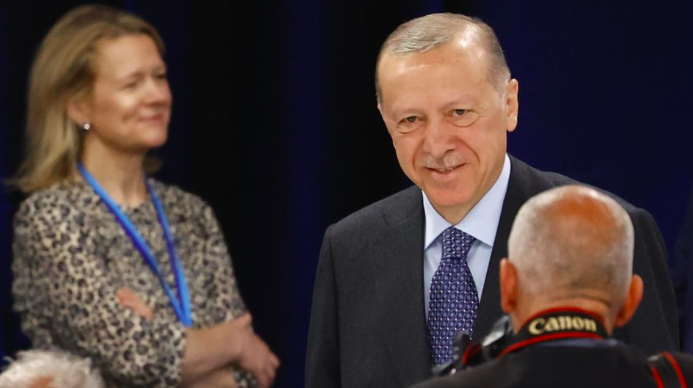By Filipe Figueiredo
The Turkish opposition has formed its broad front to defeat Recep Erdoğan.
After a brief “scare” and a possible split, six opposition parties have agreed to a single candidacy, hoping that joining forces will garner enough weight against the man who has ruled Turkey for virtually the entire 21st century.
It remains to be seen whether the strategy will pay off.

Turkish general elections are supposed to be held by June 18, but Erdoğan has already signaled a desire to move the vote forward to May 14.
Even after the tragic earthquake weeks ago, the president made this statement, which raised the possibility that the election would be postponed, not advanced.
Opposition parties claim that the date change must be approved by parliament.
Opposition forms its broad front in Turkey to remove Erdoğan from power and has a majority in the Grand National Assembly.
Of the 600 seats, his Justice and Development party, known in Turkish by the acronym AKP, has 285.
His far-right allies in the Nationalist Movement hold another 48 seats.
In other words, the date change would probably be approved without problems.
Erdogan’s wish on the date is symbolic.
SYMBOLISM
On May 14, but in 1950, the Republican People’s Party was first defeated, then led by İsmet Inonu.
Known in Turkish by the acronym CHP, the party is the home of Kemalism, the vision of Mustafa Kemal Ataturk, the “Father of Turks,” for Turkey – a secular, scientifically progressive, developmental republic.
Today, the CHP is the largest opposition to the AKP, with 134 seats in Parliament.
This Turkish election is loaded with symbolism.
Besides the date proposed by Erdoğan, it is the centennial year of the Republic of Turkey, in October.
Erdoğan’s Turkey, however, is far from Kemalism.
After the nebulous coup attempt in 2016, Erdoğan has persecuted and is persecuting his opponents, many linked to Kemalism and its banners.
Erdoğan criticizes a secular state, increasingly implementing religious elements in schools and institutions.
A great symbol of this was the restoration of Hagia Sofia to the role of a mosque, a subject we covered here in our space in July 2020.
Another symbolism is that the opposition alliance comprises six parties, referring to the Six Arrows of Kemalism.
Last Monday, Kemal Kilicdaroglu, leader of the CHP, met with Meral Aksener, leader of the nationalist party with the fifth-largest seats in Parliament, which was threatening to break with the alliance.
An agreement was reached, and the alliance was sealed.
The six parties in the alliance would have 175 of the 600 seats in parliament.
The alliance of leftist and Kurdish parties occupies another 60 seats.
Finally, there are the independents and vacant seats.
CANDIDACY
The left-wing alliance has not yet decided on a candidate.
Kilicdaroglu, on the other hand, has been the leader of the opposition and the CHP since 2010, a parliamentarian with 20 years of experience.
Before that, he was a bureaucrat, a civil servant.
His main quality is being a parliamentary articulator, a shrewd politician who has managed to stitch together the alliance of opposing parties, precisely the one that will launch him as a candidate.
On the other hand, at 74 years of age, he is inexperienced in the Executive, having never held an office.
Moreover, he collected defeats in his career, such as in the Istanbul mayoral elections and the vote that expanded Erdoğan’s powers in 2017.
He also alienates the vote of left-wing sectors, at least in the first round, for having already signaled sympathy for the Grey Wolves, a Turkish neo-fascist organization.
A stronger candidate would possibly be Ekrem İmamoglu, the mayor of Istanbul, who defeated Erdoğan’s candidate for the city in 2019 in a ballot that the national government judicialized.
Imamoglu, on the other hand, is much younger, aged 52, and is possibly hoping to be the successor to the CHP leadership.
Or alternatively, he is hoping for even greater attrition of Erdoğan in the near future.
In addition, Imamoglu would have to fight a legal battle to be able to be a candidate since he was sentenced to two terms of imprisonment and ineligibility for “insulting authorities,” a legal sham to keep him off the ballot.
Election polls even indicate that Imamoglu would have a better chance against Erdogan than Kilicdaroglu.
Polls in Turkey, of course, should be taken with more caution than usual.
BROAD FRONT
The press and universities are controlled, and the judiciary and the armed forces have undergone a purge.
Criticism of the Erdoğan government’s management of the post-earthquake crisis has prompted further searches for scapegoats.
And precisely because of this centralizing and autocratic position, Erdoğan needs to be defeated at the polls, motivating a broad alliance like the one seen.
The strategy in Hungary against Orbán was similar, and it did not work.
In the Hungarian case, because of the internal contradictions within the broad front and the choice of an unimpressive candidate.
In the Turkish case, even if Kilicdaroglu is not the dream candidate, he has been a figure of a national presence for a decade.
And in a second round, the left will vote for him, even if it is by “covering their noses.”
It is still necessary to remember that Turkey is going through a serious economic crisis, with the Turkish lira being one of the currencies that has lost the most value in recent years.
Syrian refugees, conflicts in the strategic surroundings, and relations with the European Union are other important agendas for the plea.
Ultimately, however, the Turkish divide will be between whether or not to remove Erdoğan from power after two decades.
With information from Gazeta do Povo

